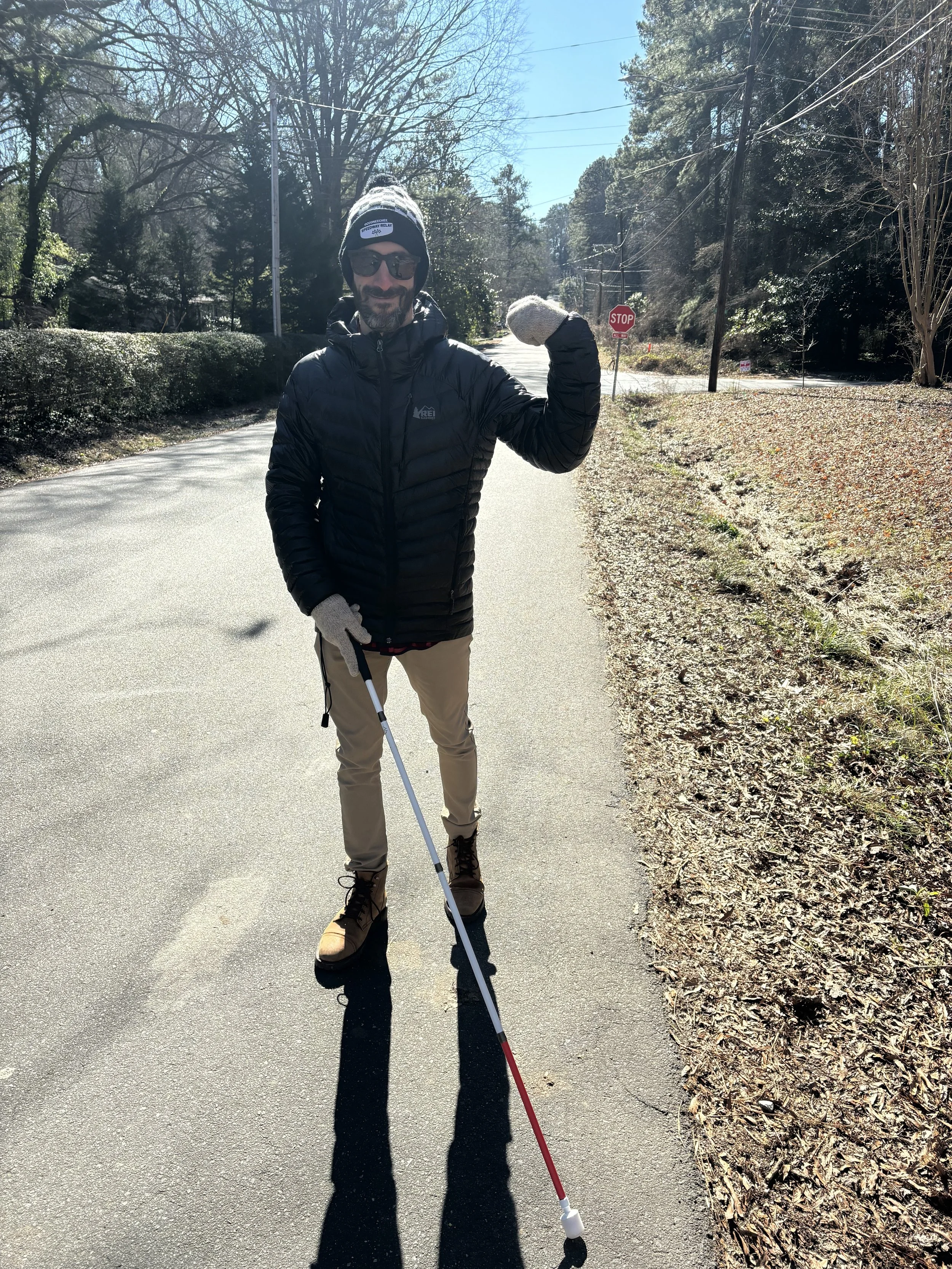Richie Kahn | Age 39 | Durham, NC
1. When were you diagnosed, and how did you or your family first notice something was different?
I was diagnosed in February 2020 at 34 years of age. My eye doctor originally diagnosed me with glaucoma. Despite treatment, I lost 15 to 20 percent of my vision over the course of eight months. I was told it wasn't glaucoma and genetic testing was ordered. Two and a half months later, my test results came back and the diagnosis was made.
2. What has been the biggest challenge, and how have you learned to cope with or overcome it?
Though the vision loss is challenging, the inability to trust what I do see, due to Charles Bonnet Syndrome (a condition where people with vision loss experience visual hallucinations), and the neurogenic bladder are the most impactful symptoms. Laughter is the best medicine and running keeps me sane.
3. What’s something you wish more people understood about living with Wolfram Syndrome?
Though your relatives might not have had a diagnosis, the Ashkenazi Jewish variant is far more common than previously understood.
4. Has your diagnosis shaped the way you think about life, relationships, or your goals?
At this point, I've likely lost about 60 percent of vision in my left eye and 50 percent in the right. I can no longer trust what I do see with my limited vision (and visual hallucinations caused by Charles Bonnet Syndrome) and neurogenic bladder is a constant companion.
When I was first diagnosed, I was traveling 80 percent of the time for work. Post-diagnosis, I recognized I was privileged — a crusty old white man working in clinical research. I had the opportunity to pivot, something not very common in this day and age. I decided to focus my efforts on better aligning drug development with patient wants and needs. Six and a half years later, I'm still pleased with the change.
5. What advice or encouragement would you give to someone newly diagnosed or to their family?
A diagnosis is the beginning, not the end. Though we have to adjust, those of us with the Ashkenazi variant still have plenty we can do and a ton of life to live.
